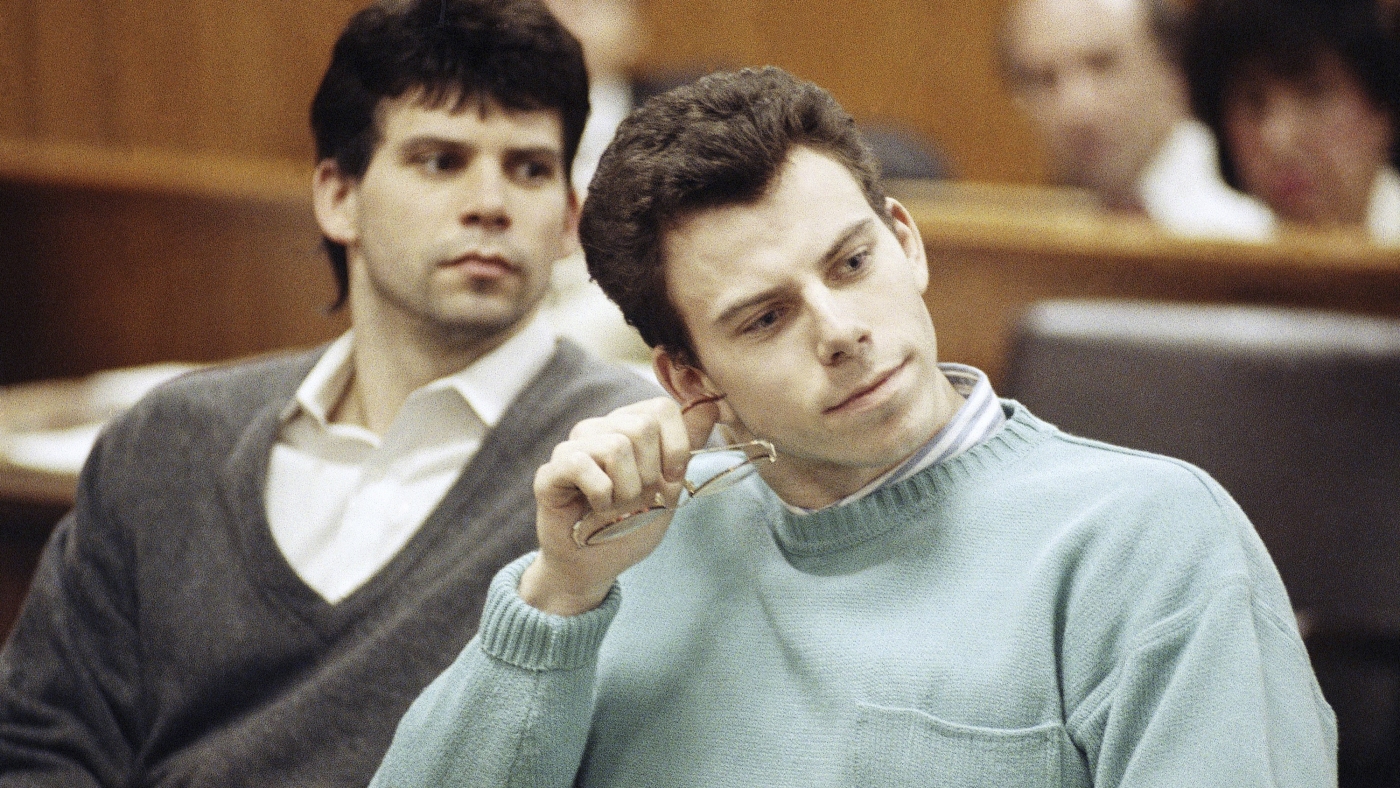The Menendez brothers, Lyle and Erik, are set to appear before the California parole board this week, marking a pivotal moment after serving over three decades for the gruesome murders of their parents. Their case, fraught with allegations of abuse and a media frenzy, has captivated the public for years. As their fate hangs in the balance, understanding the key details surrounding their crime, trial, and subsequent prison life is crucial.
This article delves into the complexities of the Menendez brothers’ case, exploring the circumstances leading to their parents’ deaths, the controversial trial that followed, and their lives behind bars. We examine the new evidence that has emerged, the legal arguments surrounding their eligibility for parole, and the potential outcomes of these hearings. With parole decisions for Erik and Lyle imminent, it is essential to dissect the facts and understand the factors that may influence their future.
Who are the Menendez Brothers?
Lyle and Erik Menendez’s early years were spent in New Jersey before their family relocated to the Los Angeles area in 1986. Their father, José Menendez, a Cuban immigrant, achieved significant success as an RCA record executive. By 1988, the family had settled into a lavish Beverly Hills mansion. However, beneath the veneer of privilege, the brothers claim a dark undercurrent existed, alleging years of emotional, physical, and sexual abuse at the hands of their parents.
On August 20, 1989, Lyle, 21, and Erik, 18, brutally murdered their parents, José and Kitty Menendez, in their home. The brothers then called 911, claiming their parents had been killed by intruders. This initial story quickly unraveled as details of the crime surfaced. Authorities initially considered possible mafia involvement because of the crime’s violent nature and José’s business ties. However, attention soon turned to the brothers, who had embarked on a spending spree in the weeks following the murders.
The Menendez Brothers Trial and Conviction
The Menendez brothers’ trial became a national spectacle in 1993, broadcast live on Court TV. The defense argued that Lyle and Erik acted in self-defense, driven by years of alleged abuse and the fear that their parents would kill them to silence their stories. They claimed José had subjected them to physical and sexual abuse, while Kitty, described as an unstable alcoholic, enabled the abuse.
The prosecution contended that the brothers were motivated by greed, seeking to inherit their father’s substantial estate, valued at approximately $14 million. In the first trial, each brother had his own jury, but both juries deadlocked, resulting in a mistrial. During the retrial in 1996, the judge restricted testimony and evidence related to the abuse claims, which the defense considered a crucial part of their case. Ultimately, both Lyle and Erik were convicted of first-degree murder and sentenced to life in prison without the possibility of parole.
Life in Prison and Rehabilitation Efforts
For the first two decades of their sentence, Lyle and Erik were held in separate prisons. Since 2018, they have been housed in the same correctional facility in San Diego. Advocates for the brothers highlight their transformation into model prisoners who have contributed positively to the prison community. Former Los Angeles District Attorney George Gascón, in his recommendation for their resentencing, noted their significant contributions to prison programs.
Erik has been credited with co-founding several programs, including Life Care and Hospice Connections, Victim Impact & Victim Empathy for Vulnerable Populations, and a Twelve Step Recovery and meditation class. Lyle has also created various programs, such as an inmate advisory bulletin, a mentorship group for youth offenders without parole, and GreenSpace, a prison beautification project involving murals and landscaping.
Emergence of New Evidence and Legal Developments
In May 2023, lawyers for the Menendez brothers filed a habeas corpus petition, seeking consideration of new evidence related to their father’s alleged sexual abuse. This evidence includes a letter written by Erik in 1988 to his cousin, Andy Cano, detailing the abuse he suffered. According to the Associated Press, the lawyers were unaware of this letter until it was mentioned in a 2015 Barbara Walters television special.
Another piece of evidence comes from Roy Rossello, a former member of the boy band Menudo, who claimed José Menendez drugged and raped him in the 1980s. These revelations, combined with increased media coverage through true-crime dramas and documentaries, have reignited public interest in the case and led to renewed calls for the brothers’ resentencing.
The Upcoming Parole Hearings
Erik and Lyle Menendez will each appear before the California parole board this week to determine their potential release. Their lawyer, Mark Geragos, anticipates that the parole board members will directly question the brothers about their rehabilitative projects in prison. The board is expected to make individual decisions on each brother’s case following these interactive sessions.
While a judge resentenced the brothers in May to 50 years to life, making them eligible for parole under California’s youthful offender law, Los Angeles’ current District Attorney, Nathan Hochman, opposes their release. Even if the parole panel approves their release, California Governor Gavin Newsom has the authority to review and potentially veto the decision, with Newsom indicating that he will make a decision by Labor Day.
Conclusion: Weighing Justice, Redemption, and Public Safety
As the Menendez brothers face their parole hearings, the decisions made will reflect a complex balancing act between justice for their heinous crime, their demonstrated rehabilitation, and concerns for public safety. The parole board and Governor Newsom must weigh the gravity of their actions against their efforts to atone for their sins and contribute positively to society while incarcerated.
The Menendez brothers’ case remains a stark reminder of the far-reaching consequences of violence and abuse. Whether they are granted parole or remain in prison, their story will continue to spark debate and introspection about the nature of justice, the possibility of redemption, and the enduring impact of trauma. The imminent decisions will undoubtedly shape the next chapter in this long and controversial saga.

Leave a Reply